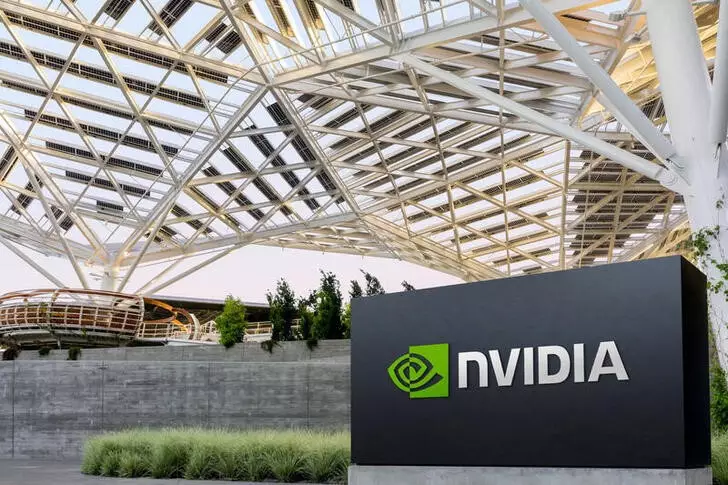The recent decision by China to launch an investigation into Nvidia, one of the leading players in the semiconductor industry, marks a significant escalation in the ongoing tech tensions between Beijing and Washington. Announced by the State Administration for Market Regulation (SAMR), the inquiry is perceived by many as a retaliatory measure in response to U.S. restrictions on the Chinese chip sector. This development encapsulates the competitive dynamics and underlying friction emblematic of the broader U.S.-China tech war.
The SAMR did not specify the exact nature of the alleged anti-monopoly violations, leaving the details shrouded in ambiguity. However, the inquiry hinges upon Nvidia’s conduct concerning commitments made during the acquisition of Israeli chip manufacturer Mellanox Technologies. This scrutiny invites questions about corporate accountability within international mergers and acquisitions, particularly when geopolitical stakes are so high.
The United States and China have been embroiled in a trade conflict that has fundamental implications for global supply chains, technological innovation, and market positions. The recent investigation can be viewed as part of a long-standing pattern where each side takes measures against the other’s corporate entities to gain leverage in the ongoing battle for digital supremacy. Following the U.S. government’s recent crackdown on semiconductor exports to Chinese entities, this new probe suggests a return volley from Beijing asserting its power and influence within its technological ecosystem.
Industry analysts note that Nvidia’s business strategies and market opportunities within China have already been significantly constrained. Following U.S. sanctions, advanced AI chips like the A100 and H100 are now prohibited from being sold in China. Nvidia has attempted to navigate these restrictions by developing modified products, but the diminishing market share reflects not only the tightening of U.S. controls but also the rising capabilities of domestic competitors in China.
In light of recent developments, Nvidia has publicly expressed its willingness to cooperate with regulators to address any concerns they might have regarding its operations. This statement underscores an important aspect of global business—companies often find themselves negotiating complex regulatory landscapes shaped by geopolitical considerations. Furthermore, Nvidia’s prompt response reflects an understanding of its vulnerability in a market that was once a dominant source of revenue.
Before the imposition of U.S. restrictions, China constituted a significant portion of Nvidia’s revenue stream—17% in the year ending January 2023, down from 26% two years prior. This decrease signals a worrying trend for the company, especially as local innovators like Huawei are rapidly closing the gap in the AI chip market. As competition intensifies, Nvidia will have to navigate not only legal challenges but also shifting market dynamics, potentially alienated from a customer base it once relied upon.
Nvidia’s situation is illustrative of a larger trend affecting multinational corporations operating in China. The increasing scrutiny and unpredictability of regulatory environments can alter investment strategies, operational decisions, and long-term growth projections. For foreign companies, China’s probing of major players reinforces the need for a nuanced understanding of local regulations, the political landscape, and the potential repercussions of geopolitical maneuvers.
Historically, the last notable investigation occurred in 2013 when Qualcomm faced consequences for allegedly abusing its market position. Qualcomm’s hefty fine brought to light the severe penalties that foreign corporations can encounter in China, potentially signaling a deterrent effect for other tech giants contemplating operations within the country.
As the semiconductor industry stands at the intersection of technology and geopolitics, both China and the United States are striving to secure their positions. The current investigation into Nvidia is not merely an isolated incident but a reflection of a broader struggle over technological domination that will likely shape the future of global innovation.
With both countries attempting to bolster their domestic industries at the expense of foreign competitors, the stakes have never been higher. As seen with the ban on critical minerals like gallium and germanium by Beijing, tit-for-tat policies could create further challenges for companies straddling both markets.
China’s investigation into Nvidia emphasizes the intertwined nature of corporate strategy and international relations. As both nations maneuver through this intricate web of trade and technology, companies like Nvidia need to remain vigilant while adapting to a rapidly changing landscape—a landscape that demands not just innovation but also resilience against external pressures.

